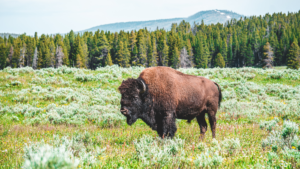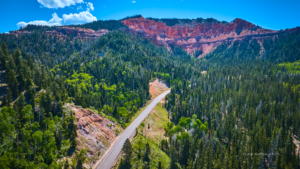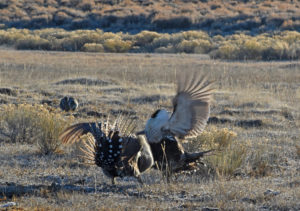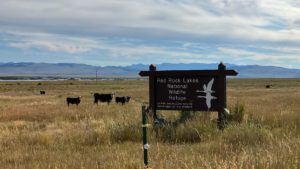Western Watersheds Project, Inc. is a non-profit 501(c)(3) membership corporation and our federal EIN is 94-3202140. Any size donation is greatly appreciated and makes a difference! Everything WWP does to influence the restoration of western public lands is based on a vision that western North America may be one of the only places on earth where enough of the native landscape and wildlife still exists to make possible the restoration of a wild natural world. Here are other options of giving or volunteering.
~ Make a gift of appreciated stock. Talk to your accountant or financial planner about the potential tax benefits of making this type of donation.
~ A gift through careful estate planning can make a lasting difference for WWP. A bequest is a simple and uncomplicated approach to planned giving. Other methods to facilitate a planned giving donation include: charitable remainder trust, charitable lead trust and gift annuity.
If you do not have an up-to-date plan in place, you can create your legal will for free using this trusted resource from our partners at FreeWill, which makes it simple to start your legacy with Western Watersheds Project in just 20 minutes online. You can also save time with your lawyer by using FreeWill to document your wishes first.
Have you already included Western Watersheds Project in your will? Please fill out this form so we can update our donor records and say thank you!
If you have an IRA, 401(k), life insurance policy, or any additional accounts, these are called “non-probate assets” and they need to be planned for separately.
Using this online tool, you can log all of your assets, name Western Watersheds Project as beneficiary to strengthen our mission, and receive printable instructions on how to set each one up with your broker.
It may be wise to talk to your accountant or financial planner to fully understand the potential tax benefits of different giving options.
~ Help others learn about WWP! You can host an event too and WWP will help. We’ll supply informational materials, send out email/printed invitations combining your guest list with local WWP supporters, and even have a WWP representative attend a “meet & greet” which can be customized to your area of interest or concern.
~ Be the eyes and ears of WWP:
- Call, write or email your local BLM or Forest Service office to report run-ins with sheep dogs, degradation, or just your overall thoughts about livestock grazing on recreational trails.
- Take photos. Put your camera to work by documenting any damage you see. Downed fencelines, trampled streambanks, crushed wildlife burrows, or predator poisons are all impacts of public lands livestock operations. Don’t forget to take pictures of the beauty too.
- Know your location. Use a GPS or a topo map to record where you went so you can say for sure which allotment you have visited. If you are tech savvy, consider using allotment layers in GoogleEarth to pin your photos to the map. (These data are available for free online.)
- Take notes. Date, time, season, weather, number of cows, condition of range developments, wildlife species, vegetation impacts, and how it affected your experience on the public lands are all key things to write down for your records.
- If you see something, say something. Find out who is in charge of the public lands you are on and contact them directly to let them know what you saw. Send an email with the photos and send a copy to wwp@westernwatersheds.org and we’ll be sure it gets to our closest regional office.
- Advocate. Write letters to the editor advocating for grazing reform. When there is a news article regarding public lands, imperiled species, or economic reform, reply with the facts about the public lands grazing program and the narrow benefit it affords a select few compared with the harms it causes. Spread the word among your friends and colleagues that beef is simply not a sustainable food. Speak out about the impacts to wolves, bighorn, grizzlies, and other native plants and animals.
Header Photo Credit: Greater Sage-Grouse. Photo by Tom Kerner, USFWS. Courtesy of Flickr.






